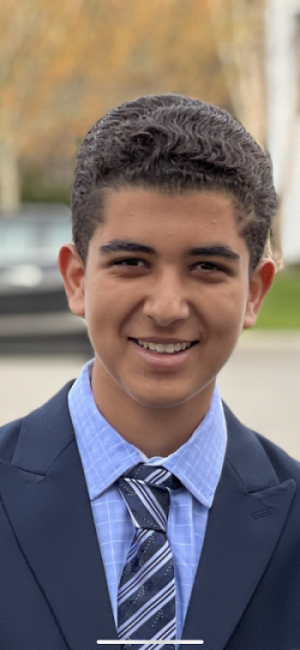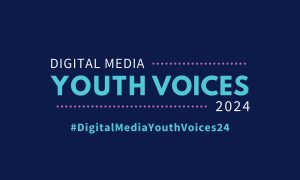 Ahmed Othman is a 17-year-old from Wakefield, Massachusetts. Ahmed is a teen advisor for #HalfTheStory, the first youth-led non-profit dedicated to improving the next generation’s relationship with technology. As Content Creator and Facilitator at #HalfTheStory Ahmed works on empowering teenagers through social media and facilitating events and opportunities for youth engagement and advocacy. Ahmed is passionate about creating a safer, better environment for youth online.
Ahmed Othman is a 17-year-old from Wakefield, Massachusetts. Ahmed is a teen advisor for #HalfTheStory, the first youth-led non-profit dedicated to improving the next generation’s relationship with technology. As Content Creator and Facilitator at #HalfTheStory Ahmed works on empowering teenagers through social media and facilitating events and opportunities for youth engagement and advocacy. Ahmed is passionate about creating a safer, better environment for youth online.
An improvement to digital media I would make in 2024 is the ability for teenagers to really understand how they consume media and, in turn, how that affects their mental capabilities through UI software. Companies need to be held more accountable for the addictive features of their platforms, and more transparency about what teens are consuming can allow teens to gain a different viewpoint on media in the modern era.
All the wonderful nonprofits aiding youth through their social media journey, and holding companies accountable for actions taken on social platforms, give me great hope. These organizations not only empower youth and allow them to prepare for a brighter future, but aid all youth in creating a safer digital space.
The one piece of advice that I can give to other young people today when it comes to digital media is to stay safe and seek advice. If you don’t understand something you saw online, or feel threatened or in emotional danger, seek help from a trusted adult or trusted peer. These lifelines can be the difference between an unhealthy and healthy relationship in social media, and should be used whenever needed.
I feel that there is a huge knowledge gap between our generation and the older generation. During the beginning of digital media, much was still being discovered and social media was only used in a primitive method, mainly for information sharing and contacting others quicker. However, today digital media is used for much more, and the digital environment has expanded to much greater lengths than years past. The older generation needs to understand this difference, as it explains the issues youth face with digital media today.
I think that parents can support their children in many ways when it comes to digital media habits. Parents can lead by example, allowing their kids to understand what a healthy relationship with digital media looks like and how to replicate it. Furthermore, when first getting a phone, parents can set restrictions to “force” children into a healthier space to create the foundation of a strong relationship, rather than set their children free into a vast environment filled with danger.
About the 2024 Digital Media Youth Voices Campaign

#DigitalMediaYouthVoices24 provides a glimpse into the hopes and concerns of youth leaders in the digital space. Using their own words, the campaign aims to elevate and amplify the voices of youth themselves as they work to create a healthy digital future.